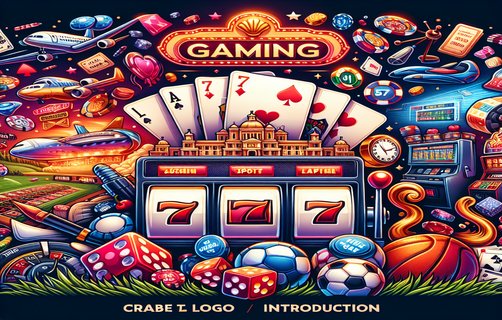Understanding Modern Lottery Systems: A Comprehensive Analysis
आधुनिक लॉटरी सिस्टम की समझ: एक व्यापक विश्लेषण

In contemporary lottery systems, transaction processing has evolved significantly. This technological advancement allows for quicker transactions and a smoother player experience. Traditional lottery systems often suffer from delays and errors in processing, which can frustrate participants. Modern systems employ automated transaction processing, ensuring accuracy and efficiency. Moreover, they offer real-time tracking of bets and winnings, which enhances transparency and trust among players.
The concept of reduced risk betting is another innovation that has changed the landscape of lotteries. Players are now offered options to stake smaller amounts with the potential for proportional winnings. This not only makes lotteries more accessible to a broader audience but also reduces the financial burden that often accompanies larger bets. By lowering the stakes, players can enjoy the thrill of the game without the fear of substantial loss, encouraging more participation.
Game time analysis has emerged as a crucial aspect of modern lottery play. By analyzing past results, players can identify patterns and trends, allowing them to make more informed betting choices. This statistical approach is rooted in probability theory, facilitating strategic betting rather than relying solely on luck. Game time analysis tools have become popular, helping players optimize their chances and enhance their experience.
Experience points (XP) add a gamification element to lottery participation. Players accumulate XP based on their engagement level, which can then be redeemed for various rewards, including special tickets or bonuses. This not only incentivizes regular participation but also fosters a sense of community among players. The more players feel like they are part of a system, the more likely they are to continue engaging with it.
Automated draws represent a significant leap forward in lottery technology. Shifting away from manual draws, systems now utilize random number generators (RNGs) to ensure fairness and unpredictability in outcomes. This automation decreases human error and enhances the integrity of the lottery process. Players can trust that every draw is conducted impartially, further encouraging participation.
Finally, probability-based betting is pivotal in shaping the strategies players adopt. With comprehensive understanding of winning odds, they can make educated choices that align with their risk tolerance. Probability-based models allow for a strategic framework in placing bets, fostering a deeper understanding of outcomes and helping players navigate the complexities of the game. Integrating probabilities into betting enhances the overall lottery experience, promoting responsible gaming practices that prioritize player education and awareness.

आधुनिक लॉटरी प्रणालियों में लेन-देन की प्रक्रिया में काफी वृद्धि हुई है। यह तकनीकी उन्नति तेज लेन-देन और सुगम खिलाड़ी अनुभव की अनुमति देती है। पारंपरिक लॉटरी प्रणालियाँ अक्सर प्रक्रिया में देरी और त्रुटियों से ग्रस्त होती हैं, जो प्रतिभागियों को निराश कर सकती हैं। आधुनिक प्रणाली स्वचालित लेन-देन संसाधन का उपयोग करती हैं, जो सटीकता और दक्षता सुनिश्चित करती हैं। इसके अलावा, वे बेट और जीत के वास्तविक समय का ट्रैकिंग पेश करती हैं, जो खिलाड़ियों के बीच पारदर्शिता और विश्वास को बढ़ा देती है।
कम जोखिम वाले सट्टे का सिद्धांत एक और नवाचार है जिसने लॉटरी के परिदृश्य को बदल दिया है। खिलाड़ियों को अब छोटे रकम पर दांव लगाने के विकल्प दिए जाते हैं, जिसके परिणामस्वरूप अनुपातिक जीत होती है। इससे लॉटरी को व्यापक दर्शकों के लिए अधिक सुलभ बनाया जा रहा है, बल्कि इससे बड़ी दांवों के साथ अक्सर होने वाले वित्तीय बोझ को भी कम किया जा रहा है। दांवों को कम करने से, खिलाड़ी बिना बड़े नुकसान की आशंका के खेल के उत्साह का आनंद ले सकते हैं, जो अधिक भागीदारी को प्रोत्साहित करता है।
गेम टाइम विश्लेषण आधुनिक लॉटरी खेलने के लिए एक महत्वपूर्ण पहलू बन गया है। पिछले परिणामों का विश्लेषण करके, खिलाड़ी पैटर्न और रुझानों की पहचान कर सकते हैं, जो उन्हें अधिक सूचित सट्टे विकल्प बनाने की अनुमति देता है। यह सांख्यिकीय दृष्टिकोण संभाव्यता के सिद्धांत में निहित है, जिससे खिलाड़ियों को केवल किस्मत पर भरोसा करने के बजाय रणनीतिक दांव लगाने में मदद मिलती है। गेम टाइम विश्लेषण उपकरण लोकप्रिय हो गए हैं, जो खिलाड़ियों को उनके संभावनाएं अनुकूलित करने और उनके अनुभव को बढ़ावा देने में मदद करते हैं।
अनुभव अंक (XP) लॉटरी भागीदारी में एक गेमिफिकेशन तत्व जोड़ते हैं। खिलाड़ी अपने संलग्नता स्तर के आधार पर XP एकत्रित करते हैं, जिसे फिर विभिन्न पुरस्कारों के लिए भुनाया जा सकता है, जिसमें विशेष टिकट या बोनस शामिल हैं। यह केवल नियमित भागीदारी को प्रोत्साहित नहीं करता है, बल्कि खिलाड़ियों के बीच समुदाय की भावना को भी बढ़ावा देता है। जितना ज्यादा खिलाड़ियों को ऐसा लगेगा कि वे एक प्रणाली का हिस्सा हैं, उतना ही ज्यादा वे इसके साथ जुड़ने के लिए प्रवृत्त होंगे।
स्वचालित ड्रॉ लॉटरी प्रौद्योगिकी में एक महत्वपूर्ण कदम है। मैन्युअल ड्रॉ से दूर होते हुए, सिस्टम अब निष्पक्षता और अप्रत्याशिता सुनिश्चित करने के लिए रैंडम नंबर जनरेटर (RNGs) का उपयोग करते हैं। यह स्वचालन मानव त्रुटि को कम करता है और लॉटरी प्रक्रिया की अखंडता को बढ़ाता है। खिलाड़ी भरोसा कर सकते हैं कि हर ड्रॉ निष्पक्षता से किया गया है, जो भागीदारी को और बढ़ाता है।
अंत में, संभाव्यता आधारित सट्टा रणनीतियों को आकार देने में महत्वपूर्ण है। जीतने के अवसरों की व्यापक समझ के साथ, वे ऐसे शिक्षित विकल्प बना सकते हैं जो उनकी जोखिम सहिष्णुता के साथ मेल खाते हैं। संभाव्यता आधारित मॉडल दांव लगाने में एक रणनीतिक ढांचा की अनुमति देते हैं, जिससे परिणामों की गहरी समझ विकसित होती है और खिलाड़ियों को खेल की जटिलताओं को नेविगेट करने में मदद मिलती है। दांव में संभावितताओं को सम्मिलित करने से समग्र लॉटरी अनुभव को बढ़ाया जाता है, जिम्मेदार गेमिंग प्रथाओं को बढ़ावा मिलता है, जो खिलाड़ी शिक्षा और जागरूकता को प्राथमिकता देती हैं।

comments
LuckyDuck
This gives a refreshing perspective on modern lottery systems!
BetMaster3000
Reduced risk betting sounds like a game changer for new players.
GamerGirl
I love the idea of experience points in lotteries, it adds more fun!
ProbabilityWizard
Game time analysis really makes you think strategically. Great insights!
Automator007
Automated draws are the future! Trust in the fairness of the game is crucial.
AnalyticalAce
Learning about probability-based bets can definitely enhance the playing experience.